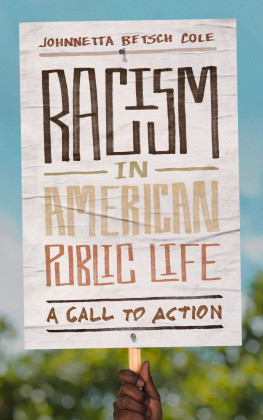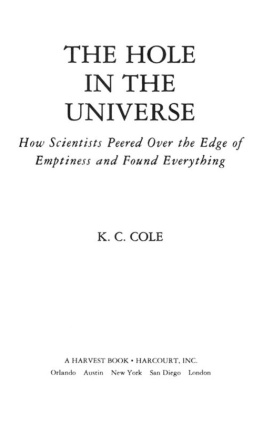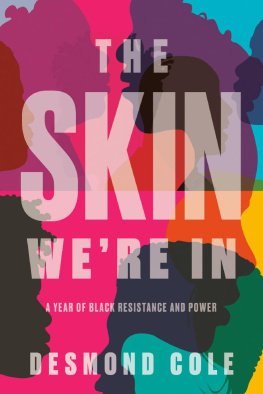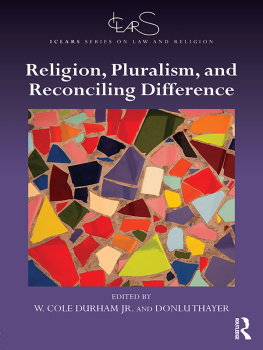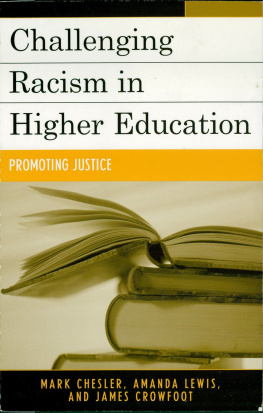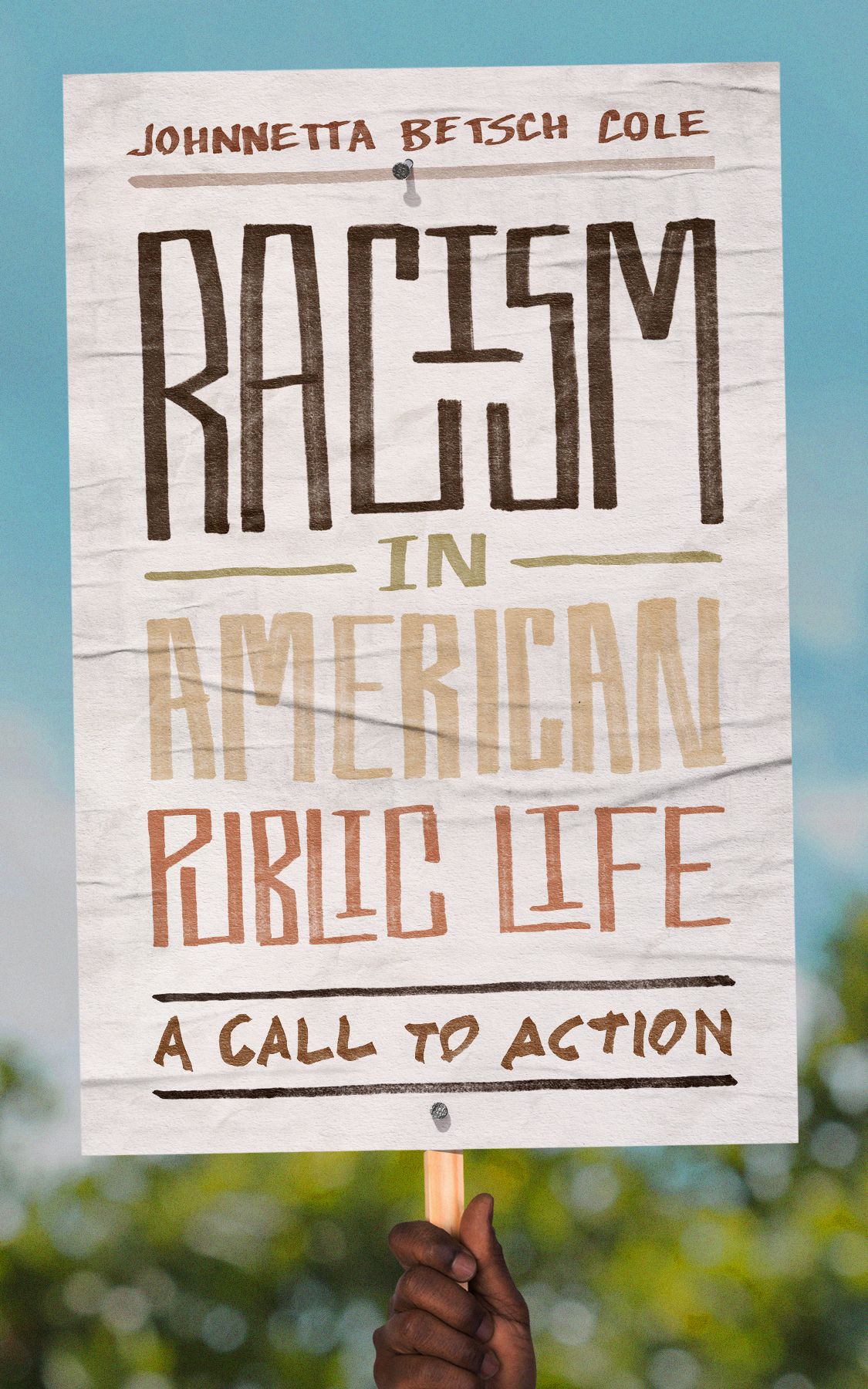
Racism in American Public Life
THE MALCOLM LESTER PHI BETA KAPPA LECTURES ON LIBERAL ARTS AND PUBLIC LIFE
DAVID A. DAVIS, EDITOR
Racism in American Public Life
A Call to Action
Johnnetta Betsch Cole
UNIVERSITY OF VIRGINIA PRESS
Charlottesville and London
University of Virginia Press
2021 by the Rector and Visitors of the University of Virginia
All rights reserved
First published 2021
Library of Congress Cataloging-in-Publication Data
Names: Cole, Johnnetta B., author.
Title: Racism in American public life : a call to action / Johnnetta Betsch Cole.
Description: Charlottesville : University of Virginia Press, 2021. | Includes bibliographical references.
Identifiers: LCCN 2020024759 (print) | LCCN 2020024760 (ebook) | ISBN 9780813945620 (hardcover) | ISBN 9780813945637 (epub)
Subjects: LCSH : Racism in higher educationUnited States. | African AmericansEducation (Higher)Social aspects. | Educational equalizationUnited States. | United StatesRace relations.
Classification: LCC LC 212.42 . C 65 2021 (print) | LCC LC 212.42 (ebook) | DDC 379.2/60973dc23
LC record available at https://lccn.loc.gov/2020024759
LC ebook record available at https://lccn.loc.gov/2020024760
Cover art: Elements from Shutterstock (Artush, andersphoto, Kues, kpboonjit, photka). Hand lettering by Derek Thornton, Notch Design.
This book is dedicated to my brother, John Thomas Betsch, Jr., whose love of books, art, and music speaks to the power and beauty of a liberal arts education.
Contents
Mercer University in Macon, Georgia, hosts the Malcolm Lester Phi Beta Kappa Lectures on the Liberal Arts and Public Life each year as part of our Phi Beta Kappa induction ceremony. The lectures allow our students to meet an important figure in American higher education and to have conversations about the value of a liberal arts education. This experience reinforces the significance of each students accomplishment in being inducted into Phi Beta Kappa, and the conversations can be inspiring, but a series of lectures and conversations among a small group of people has a limited effect. Dr. Malcolm Lester had a vision for a series of lectures that supports the mission of the Phi Beta Kappa Society and that reaches a broad audience to influence the discourse about liberal arts in the United States.
Dr. Malcolm Lester, a 1945 graduate of Mercer, returned to the university after graduate school at the University of Virginia to teach history and was named dean of the College of Liberal Arts and Sciences in 1955. In 1959, he left Mercer to join the faculty of Davidson College, where he taught for the next thirty years. While at Davidson, he served as a Phi Beta Kappa senator and member of the Committee on Qualifications, which reviews schools applications to shelter chapters of the Phi Beta Kappa Society. He felt strongly that Mercer should also shelter a chapter, and he encouraged faculty to apply. In 2007, he made a gift for a lecture series on the liberal arts at Mercer to commence once the university sheltered a chapter of the Phi Beta Kappa Society. Mercer received a charter in 2016. Dr. Lesters bequest states that the income of such endowed fund shall be used to pay for the delivery of and publication of an annual oration to be delivered by a distinguished scholar at the annual initiation of members in course of Phi Beta Kappa. The lectures are published by the University of Virginia Press, as requested by Dr. Lester, who was inducted into Phi Beta Kappa as a graduate student at the university.
The lecture series focuses on the relationship between the liberal arts and public life. This relationship has been a contentious issue in the recent past. Many politicians have publicly disparaged liberal arts majors, including President Barack Obama, who once dismissed the value of studying art history, and Senator Marco Rubio, who claimed that we need fewer philosophers. The most common criticism is that liberal arts degrees are of less economic value than vocational or professional programs. In the years following the Great Recession, most states significantly cut appropriations for higher education, and funding in many states is still below 2008 levels. Meanwhile, enrollment in many liberal arts programs has declined since 2008. A 2018 study from the American Enterprise Institute found that the number of undergraduates earning bachelors degrees in some liberal arts subjects, such as English, history and philosophy, fell by at least 15 percent between 2008 and 2016, even though the total number of bachelors degrees awarded rose 31 percent during that period. The data shows that students are gravitating to applied sciences, engineering, and business, and many of them are following the conventional wisdom that these programs lead more predictably to careers with secure incomes.
The fallout from this shift has had serious consequences for higher education. Some schools have eliminated liberal arts programs with declining enrollment. Several schools have eliminated majors in philosophy and foreign languages, and others have cut or reduced core disciplines such as history and English or relegated humanities and social sciences programs to service components supporting programs that are more vocational in nature. An even greater concern is the fact that dozens of small colleges specializing in liberal arts have closed or consolidated since 2008 due to low enrollment and declining revenue. Under the circumstances, it is unsurprising to see think pieces in major publications proclaiming the end of the liberal arts.
This situation requires us to think about the relationship between the liberal arts and public life. We must ask if the liberal arts serve a useful or necessary purpose, if they are economically valuable, and if we should consider moving to different academic paradigms. Despite the current trends, numerous studies indicate that the liberal arts have considerable practical value. A 2014 study from the American Association of Colleges and Universities, for example, found that 93 percent of employers agree that job candidates demonstrated capacity to think critically, communicate clearly, and solve complex problems is more important than their undergraduate major. The contemporary workplace is a highly dynamic environment, and it requires and rewards skills that make people adaptable, creative, and collaborative, which are precisely the skills that a liberal arts education develops.
A study by the Mellon Foundation released in 2019 and titled The Economic Benefits and Costs of a Liberal Arts Education found that such an education leads to meaningful economic mobility, which has benefits for individuals in their earning ability as well as numerous positive benefits for society. Contrary to criticism, a liberal arts education makes people employable and productive, and those with liberal arts degrees have lifetime earning potentials comparable to those of people in specialized technical fields. The data, therefore, does not support the movement away from liberal arts in American universities. Instead, it reinforces the value of a liberal arts education for economic development at both the individual and the social level.
Economic impact, however, is a limited means to measure the value of an education, and it does not reflect many of the most important aspects of a liberal arts education, which are abstract yet highly valuable. Rather than being a specific body of content knowledge, education in the liberal arts and sciences is a learning method that teaches students how to find, understand, interpret, and evaluate evidence and information according to scientific, social scientific, and humanistic perspectives. While a large range of academic disciplines are associated with the liberal arts, the crux of the method is interdisciplinary. It is a way of learning that privileges critical thinking, breadth of knowledge, exposure to divergent ideas and perspectives, ethical discernment, civic engagement, rational decision-making, empathy, and lifelong learning. This valuable set of skills empowers a person to be an effective and adaptable worker and to live a free and content life in a civil society. A 2018 study by the American Academy of Arts and Sciences, in fact, found that people with liberal arts educations have high rates of satisfaction with their jobs and with their lives. A liberal arts education has value that benefits a person both quantitatively and qualitatively. Because some of the values are not obvious, however, we need to explain the learning methods to students choosing colleges and academic majors; we need to convince politicians and business leaders that a liberal arts education prepares people for productive careers; and we need to make the argument in public that the liberal arts are beneficial to individuals and society. The Lester Lectures are intended to give key figures in higher education a platform to address these crucial issues.
Next page
